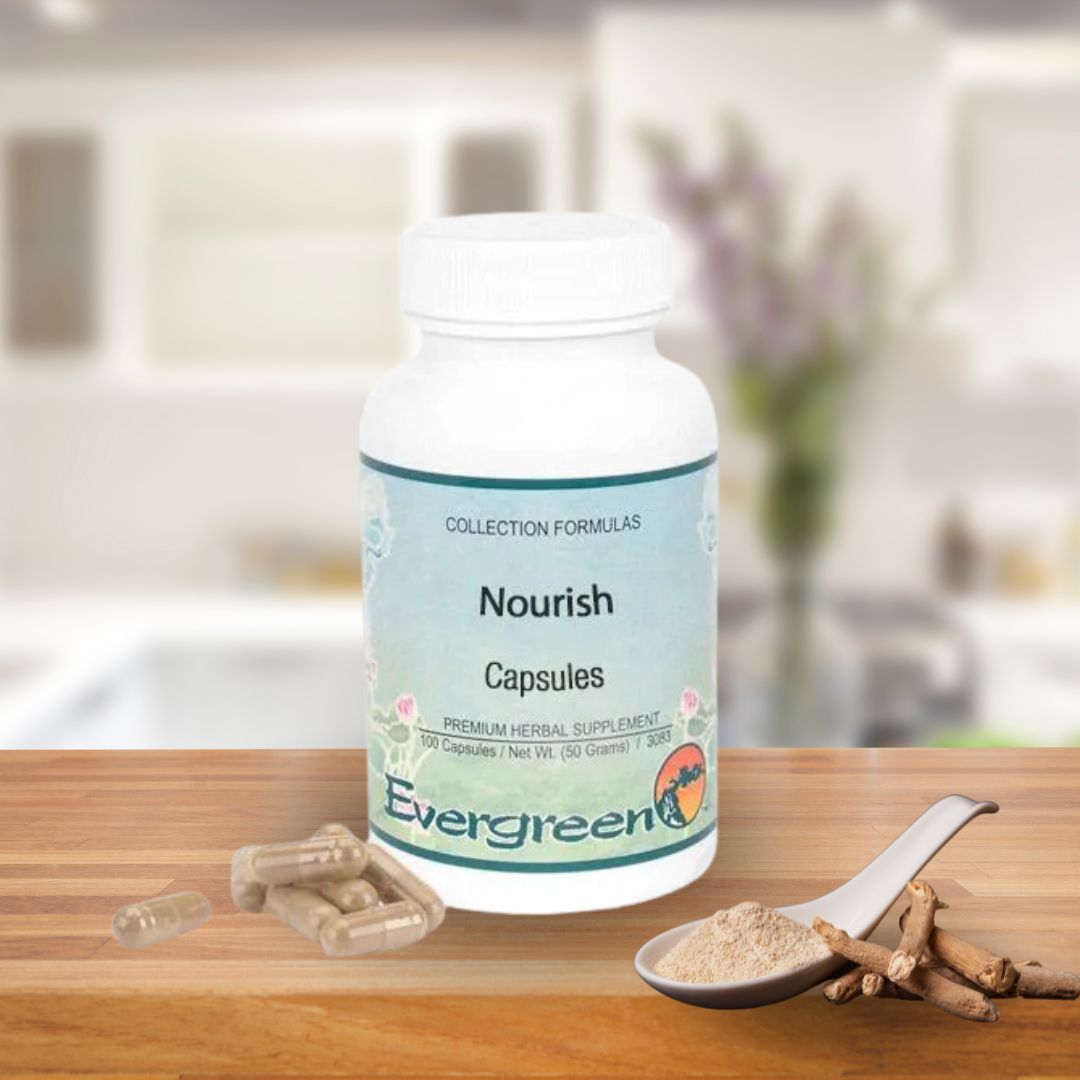1
/
of
1
ORGANIC QI
Nourish
Nourish
Regular price
$28.33 USD
Regular price
Sale price
$28.33 USD
Unit price
/
per
Couldn't load pickup availability
Clinical Applications
Clinical Applications
- Menopause: hot flashes, night sweats, fluctuation of body temperature
- Kidney yin deficiency with mild deficiency heat conditions:
- Eyes and ears: blurry vision, dizziness, general visual disturbance, fatigue of the eyes, optic nerve atrophy, mild cases of glaucoma, and macular degeneration
- Kidneys: chronic nephritis, nephrotic syndrome, chronic renal failure
- Bladder: frequent urination, urinary incontinence
- Liver: chronic hepatitis
- Pancreas: diabetes mellitus
- Skin: dryness with lack of elasticity of the skin throughout the body
Actions
Actions
- Regulates endocrine functions to balance the hormones
- Revives eyes and ear functions
- Restores normal functions of internal organs, such as liver, kidneys, bladder, and pancreas
Cautions and Contra-Indications
Cautions and Contra-Indications
This formula should not be used for yang deficiency with such symptoms as intolerance of cold with cold hands and feet.
Nutrition and Lifestyle Instructions
Nutrition and Lifestyle Instructions
- Eat a variety of fresh, organic fruits and vegetables of all colors.
- Incorporate more high-fiber whole grains and nuts into diet.
- Drink warm or hot liquids with meals. Putting cold and ice on any part of the body will immediately constrict the flow of blood to that region. Similarly, drinking cold or iced drinks with meals will hinder the natural peristaltic movements of the digestive system.
- Foods with antioxidant effects, such as vitamin A, C and E are beneficial as they neutralize the free radicals and minimize damage to cells. Beneficial foods include citrus fruits, carrots, green leaf vegetables, and green tea.
- Increase intake of foods that nourish yin and moisten dryness, such as yam, radishes, potatoes, carrots, melons, cucumbers, beets, turnips, malanga, celeriac, taro, and rutabaga.
- Chew food completely and thoroughly. The digestive tract can process and absorb smaller pieces of food much better than food that is incompletely chewed. Larger pieces of food can lead to incomplete digestion and digestive discomfort.
- Always eat breakfast. According to the TCM clock, the most optimal time for the digestive system is in the morning from 8 to 10 a.m.
- Give the body two to three hours between the last meal of the day and bedtime. During sleep, the digestive system slows down as well. Make sure the body has adequate time to digest the food before going into sleep mode.
- If the patient is allergic to any food or feels uncomfortable after eating certain foods, then avoid eating them.
- Avoid fast food, processed foods, junk food, foods with artificial colors or sugars, and carbonated drinks. Stay away from meat, greasy food, alcohol, caffeinated and energy drinks, dairy products (except for unsweetened low-fat yogurt), tap water, iron supplements and vegetables and fruits sprayed with pesticides.
- Avoid spicy/pungent/aromatic vegetables such as pepper, garlic, onions, basil, rosemary, cumin, funnel, anise, leeks, chives, scallions, thyme, saffron, wormwood, mustard, chili pepper, wasabi, and cardamom. Also avoid certain fruits that may produce heat and aggravate the condition, such as mango and durian.
- Consume as few meat products as possible. Do not eat processed meats, such as lunch meats, hot dogs and sausages, as they contain nitrites that are associated with inflammation and chronic disease.
- Avoid stress, tension, and anxiety as much as possible.
- Avoid cigarette smoking or exposure to second-hand smoke as it may dry up yin and body fluids.
Dosage
Dosage
Take 3 to 4 capsules three times daily on an empty stomach with warm water. For prevention of chronic and recurrent infections in the genito-urinary region, take 2 to 3capsules three times daily.
Ingredients
Ingredients
- Poria
- Fructus Lycii
- Cortex Phellodendri Chinensis
- Flos Chrysanthemi
- Cortex Moutan
- Rhizoma Dioscoreae
- Fructus Corni
- Radix Rehmanniae Praeparata
- Rhizoma Alismatis
Share


